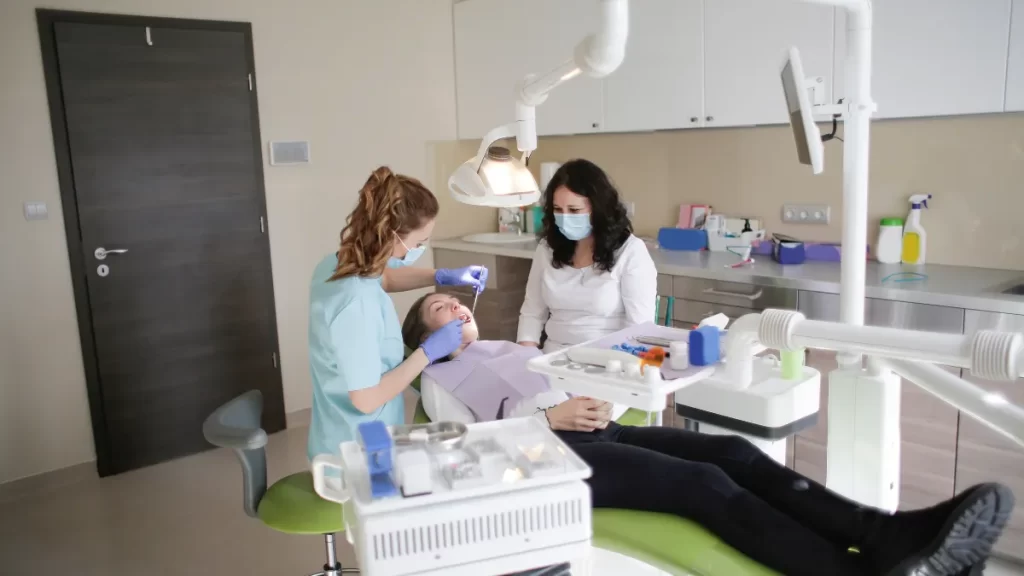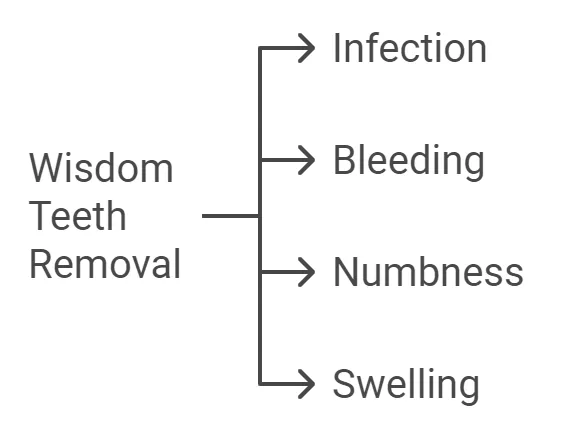Table of Contents
When it comes to wisdom teeth, many wonder if can you keep your wisdom teeth or if it is better to remove them. The decision is sometimes more clear-cut than it may seem. This article uncovers the shocking truth about wisdom teeth, the potential risks and benefits of keeping or removing them, and what this means for your long-term oral health.
Wisdom Teeth: What Are They?
The wisdom teeth, or third set of teeth, called molars, usually erupt between the ages of 17 and 25. Historically, they were helpful for our ancestors, who needed extra teeth to chew rough food like roots and raw meat. Today, our diets have changed, and so have our needs. So, can you keep your wisdom teeth, or are they more trouble than they’re worth? Let’s find out.
Why Do Some People Remove Their Wisdom Teeth?
One common reason people remove wisdom teeth is overcrowding. As the last set of teeth to come in, wisdom teeth often don’t have enough room to grow properly, causing them to push against other teeth. This may result in discomfort, edema, and even damage to surrounding teeth.
Another concern is impaction. Under the gums are imprisoned wisdom teeth that are impacted or only partially emerge, which can lead to infection, gum disease, or cysts. In these cases, it’s usually best to remove them. So, can you keep your wisdom teeth if they’re impacted or causing crowding? The answer is likely no.
Can You Keep Your Wisdom Teeth?
Now, the big question: can you keep your wisdom teeth? In some cases, yes. If your wisdom teeth come in straight, don’t cause overcrowding, and are easy to clean, there’s a good chance you can keep them. Dentists may monitor your teeth over time to ensure they don’t cause problems in the future. Wisdom teeth require routine cleanings and examinations to stay healthy.
Some Believe Healthy Teeth Should Be Left Alone
We often advise patients that if their wisdom teeth are healthy and not causing any complications, there’s no need to remove them. Your third molars can remain in place if they are:
- In good health with no signs of decay
- Fully erupted and properly aligned with the gums
The Risks of Keeping Your Wisdom Teeth
While, can you keep your wisdom teeth, risks are involved. The wisdom teeth are situated in the oral cavity far back, which makes cleaning them challenging. Even if they come straight, they can still become a breeding ground for bacteria, leading to cavities and gum disease. If you decide to keep them, maintaining good oral hygiene is crucial.
Additionally, wisdom teeth can cause problems even after they are fully grown. Your gums can recede as you age, and wisdom teeth may shift, leading to future complications. So, can you keep your wisdom teeth now and be prepared to address issues that might arise later?
Also Read: Your Wisdom Teeth: Keep or Remove? The Shocking Answer
Signs You Should Remove Your Wisdom Teeth
If you’re experiencing any of the following symptoms, You should think about getting your wisdom teeth extracted: wisdom teeth:
| Signs You Should Remove Your Wisdom Teeth |
|---|
| Pain or discomfort in the back of your mouth |
| Swelling or redness around the gums |
| Difficulty opening your mouth |
| Persistent bad breath or an unpleasant taste |
| Crowding of other teeth |
| In these cases, the answer to Can you keep your wisdom teeth is clear—it’s time to remove them. Delaying removal can lead to more serious issues, including infections or damage to nearby teeth. |
In these cases, the answer to whether you can keep your wisdom teeth is clear—it’s time to remove them. Delaying removal can lead to more severe issues, including infections or damage to nearby teeth.
The Removal Process: What to Expect
If you and your dentist decide that removing your wisdom teeth is the best option, the process is straightforward. Wisdom teeth removal is a standard procedure, often done under local or general anesthesia. After the procedure, you’ll need a few days of rest, and your dentist will provide aftercare instructions to ensure proper healing.
The key takeaway? is whether can you keep your wisdom teeth. In some cases, removal is often a quick and easy solution to avoid future problems. Get more information about Health.
Benefits of Removing Wisdom Teeth

So, why remove them at all? For many people, pulling wisdom teeth can prevent long-term oral health issues. Without the risk of impaction, overcrowding, or infection, you’ll likely experience fewer dental problems. Maintaining good oral hygiene is also easier when you don’t have hard-to-reach wisdom teeth at the back of your mouth.
For those asking, can you keep your wisdom teeth? The answer depends on your situation. If keeping them puts your oral health at risk, removal is the best choice.
Can You Keep Your Wisdom Teeth Without Surgery?
If you’re wondering whether can you keep your wisdom teeth without surgery, it depends on the condition of your teeth. Some people go their whole lives without needing surgery, while others may need it due to complications later on. Regular dental visits and X-rays can help determine if your wisdom teeth will likely cause future issues.
Also Read: What Can You Eat After Tooth Extraction? Reveal Soft Options!
Talk to Your Dentist for Guidance
Consult your dentist or oral surgeon if your wisdom teeth need to be extracted. They will assess your oral health, obtain X-rays, and discuss the best treatment options, including the advantages and disadvantages of extraction.
As with any tooth extraction, removing wisdom teeth comes with certain risks. Although most patients recover smoothly, some may experience:

If you notice severe swelling, bleeding, or signs of infection after removing your wisdom teeth, contact your doctor immediately.





